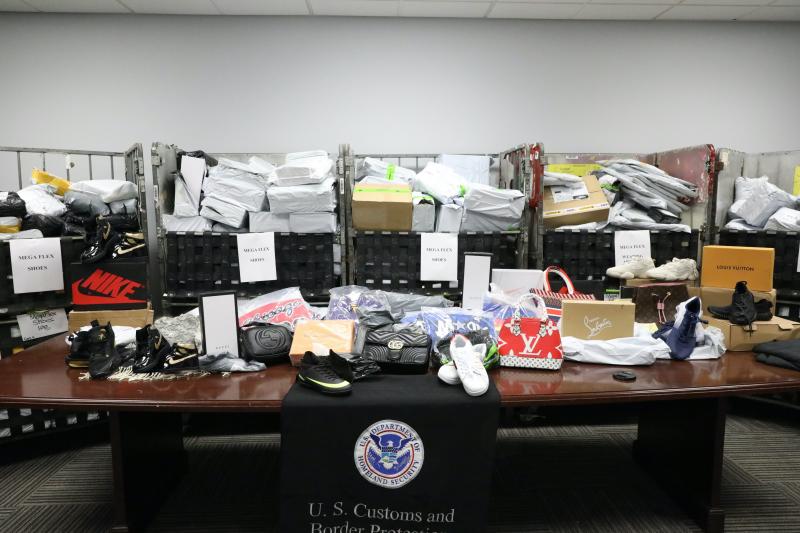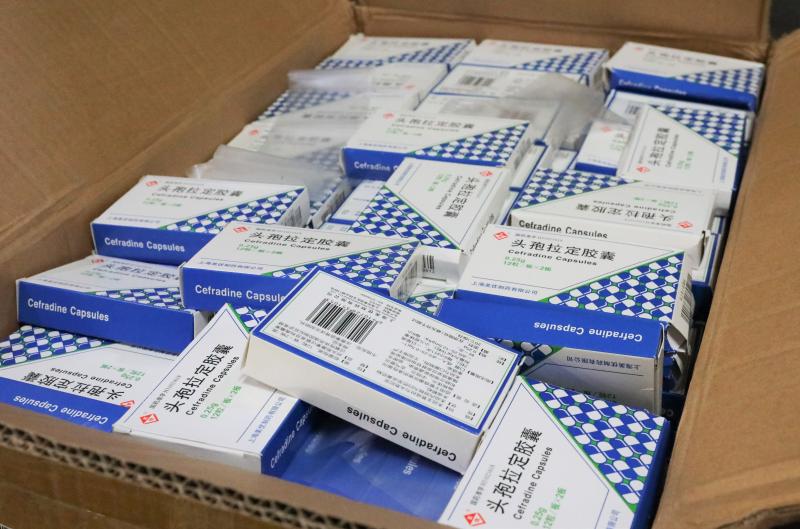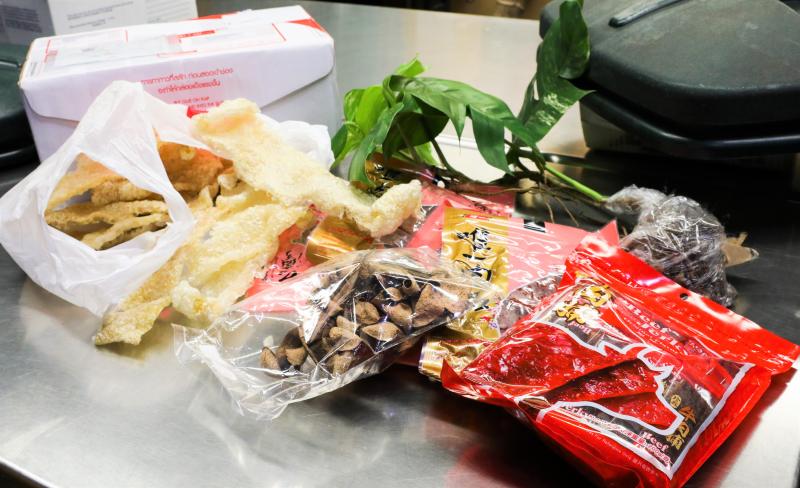Illicit Chinese Products Pose a Very Real Threat to the Safety and Economic Prosperity of the American People

containing illicit "Made in China" products.
LOS ANGELES—As the year-end holiday shopping season enters in full motion, U.S. Customs and Border Protection (CBP) officers assigned to the Los Angeles International Airport (LAX), international mail facility (IMF) intensified Operation Mega Flex, a CBP-led ongoing nationwide aggressive crackdown in detecting, intercepting and seizing illicit goods arriving in small parcels from China.
In just one day this month, CBP officers at LAX IMF intercepted 812 shipments containing counterfeit footwear, handbags, wearing apparel, prohibited plant and animal products, and other items that threaten the health and safety of consumers, undermine the competitiveness of U.S. businesses, and put U.S. agriculture and the environment at risk.

fake Christian Louboutin shoes.
“Counterfeit and other illicit goods from China pose a very real threat to the safety and economic prosperity of the American people, said Carlos C. Martel, CBP Director of Field Operations in Los Angeles. “CBP will continue to use all methods at its disposal to ensure items entering the U.S. do not harm Americans and to foster a fair and competitive trade environment for American manufacturers.”
Available on illegitimate websites and sold in underground outlets, counterfeit commodities multiply the illegal profits of smugglers and traffickers. Consumers are tricked into believing they are buying an original product at a significant discount.

a threat to the health and safety of consumers.
“The e-commerce explosion has created a collateral massive underground market for all sorts of illicit goods, from fake prescription medicine, electronics, wearing apparel to prohibited food products containing potentially deadly animal diseases,” said LaFonda Sutton-Burke, CBP LAX Area Port Director.
Through its nationwide Mega Flex operations, CBP has found that more than 13 percent of targeted shipments contain counterfeit goods or contraband. Since July 2019, CBP has seized more than 4,800 shipments and nearly 2,600 agriculture violations through Operation Mega Flex that posed health, safety, or economic threats to the United States and its people.

diseases into the United States.
Operation Mega Flex is a CBP-led, interagency effort initiated in July 2019 to address Chinese trade violations and illicit networks in the international mail environment through period enhanced inspections. CBP conducts Mega Flex operations at International Mail Facilities and Express Consignment Hubs nationwide in coordination with U.S. Immigration and Customs Enforcement, the U.S. Postal Inspection Service, and the U.S. Food and Drug Administration.
Nationwide in fiscal year (FY) 2019, CBP seized 27,599 shipments containing goods that violated intellectual property rights. The total estimated MSRP of the seized goods, had they been genuine, increased to nearly $1.5 billion from over $1.4 billion in FY 2018.
Watches and jewelry topped the list for number of seizures based on intellectual property rights (IPR) violations with 4,242 representing 15 percent of all such seizures. Watches and jewelry continued as the top product seized for IPR violations by total MSRP value with seizures valued at over $687 million, representing 44 percent of the total MSRP value of seizures in this category. Violative wearing apparel and accessories seizures placed second by MSRP value, with seizures estimated to be valued at more than $226 million.
Fiscal Year 2019 Intellectual Property Rights Statistics
If you have any suspicion of or information regarding suspected fraud or illegal trade activity, please report the trade violation to e-Allegations Online Trade Violation Reporting System or by calling 1-800-BE-ALERT.
The enforcement of Intellectual Property Rights is a CBP Priority Trade Issue. Priority Trade Issues represent high-risk areas that can cause significant revenue loss, harm the U.S. economy, or threaten the health and safety of the American people. They drive the risk-informed investment of CBP resources as well as enforcement and facilitation efforts, including special enforcement operations, outreach, and regulatory initiatives.

